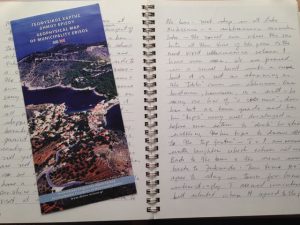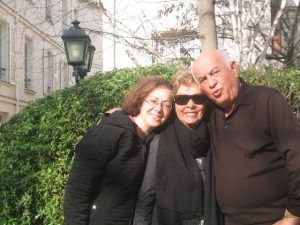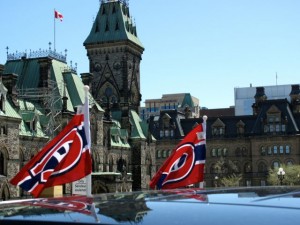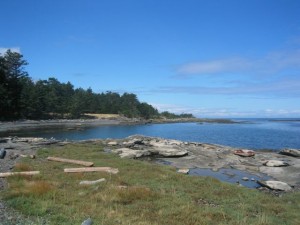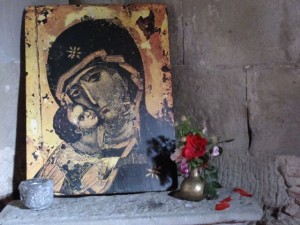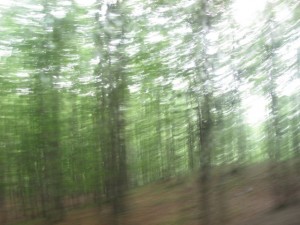Posts Tagged ‘family’
A Life In Script
I feel the absence of my mother most keenly when I catch a glimpse of her writing.
When I look at the carefully crafted words and sentences she moulded; the ones she wrote down. An alchemy of thought, energy, effort, pen, and paper.
Mom used writing to express her thanks. To scold political leaders. To extend congratulations. To advocate for causes. To nurture connections.
She cherished the handwritten note even after her grandsons helped her learn to use email.
My mother believed there was a personal quality to a handwritten note that was impossible to replicate in type form. I agree. Each stroke of the pen captures a person’s personality, their character, history, and experience. The way in which hand-written words create a web of meaning is the most affirmative statement of “I am here”. When I catch sight of my mother’s writing script I wonder how it is that she is not here.
How can the person whose heart propelled the pen across the page not be here to cross that t and dot that i?
I feel the absence of my mother most keenly when I see her writing, with an intake of breath and a vise clamped around my heart.
My mother’s script is from an earlier era when education had not been commodified and contorted. When it was a gift to learn. A time when writing was valued not only for its content but for its form. When penmanship spoke of culture and education and, yes, privilege.
That script, her unique cursive style, is undeniably and uniquely my mother, Yulanda.
I feel the absence of my mother most profoundly when I stare at her writing.
René Descartes said, “I am thinking, therefore I am.” My mother’s cursive script says, “I wrote, therefore I have been.” And as the ability to recall her physical presence becomes the dream of time lapsed, her writing will remain forever real and tangible.
As her daughters, her children, and perhaps someday her grandchildren and descendants, we will carry her DNA forward in time. However, her letters, the drafts of her speeches, the thank-you cards, her recipes, the quotations she noted down, her signature — like the one in the volume of William Shakespeare’s collected works that she used for her studies at McGill — these all serve as a testament to her personal spirit.
No other hand shaped those words, no other mind developed those ideas, no one else forged those connections: letter to letter, person to person, heart to heart.
I feel the absence of my mother most keenly when I catch a glimpse of her writing. The words and sentences that flowed from the pen she held, the pen she guided into forever.
In the year and months since my mother died (and a month before what would have been her 79th birthday), my family has cried, laughed, and celebrated birthdays, anniversaries, graduations, and weddings. We’ve attended funerals. We’ve had time at home, we’ve been away together and separately. Time has carried us forward. It is life’s imperative.
And she, my mother, has been there with us. In each moment, in each thought, in each word.
She always will be.
“If we danced more and sang more, we’d be happier people.”
Yulanda M. Faris
July 2, 1937 – April 23, 2015
A Man For All Seasons
Author’s Note: I’m sad to report that FUB passed away on May 27, 2014. The world is a dimmer, duller place without him.
There is a man I know.
His name is Robert.
Bob.
Or as we like to call him FUB – Funny Uncle Bob.
Funny because he is witty and bright. Even in a serious discussion with Bob, there will come a point when you find yourself laughing. Maybe a chuckle, but more often than not a belly laugh, a laugh from the heart.
Bright because he is a spark. He creates, he paints, he draws, he writes. He is an artist, an inspiration, a giver, a friend, a husband, a father, a grandfather.
He’s not actually my uncle, but the dearest and closest of family friends. If I were to ask my parents, I’m sure they would recall the moment when they first met Bob and his wife Carol. For me, and I think for my sisters, it’s as if Bob has always been there. There is no first moment, there just is.
In 2010 my parents received the Ramon John Hnatyshyn Award for Voluntarism in the Performing Arts. Each recipient of a Governor General’s Performing Arts Awards is allotted a number of tickets to the events held for honourees. The number in our group exceeded the limit because my father lobbied to ensure he could include Bob and Carol.
Our four days in Ottawa were magical. From evenings in the bar, to Question Period in the House, to receptions and galas, Bob’s wry gaze, Bob’s singular perspective, Bob’s irreverence enhanced and enlivened every moment.
Bob’s generosity of spirit has spilled over into his interactions with my son who is an emerging artist. During a visit to Hornby Island in 2008, we went on walks together and we would sketch en plein air to capture the golden aura of Helliwell Park and the shimmering blue of the ocean. I was even required to join in and put pencil to paper!
Bob also sat down with my son indoors and they drew together in the creative stillness of common purpose. It was mentorship of a seven year-old to show what it means to observe as an artist, to be diligently aware of your surroundings, and how to express what you’ve seen for others to experience.
This past summer, my mother, my son, and I went out to visit Bob and Carol at their home. It was an opportunity for my son to see Bob’s studio, to have a look at Bob’s world, the world of a successful artist. My son was whisked away upon arrival and when the two rejoined us for lunch, my son was clutching canvases, drawing paper, and pens. Gifts from one artist to another with the most priceless one being the encouragement to do.
That’s FUB.
That’s Bob and he has decided to discontinue chemotherapy. He is at home with his family and he is embraced within a circle of love which extends beyond the boundaries of time and place.
His name is Robert.
There is a man I know.
And thus it shall be forever.
Getting to Know Me and You
In a recent blog post, Chris Kennedy, Superintendent of Schools for West Vancouver, issued a challenge which involves providing 11 random facts about one’s self, answering 11 questions, and posing 11 questions for others to answer.
I don’t have an athlete’s competitive gene in the way Chris does, but I’m not one to pass up a challenge — particularly one which offers an easy way into kickstarting my blog for the year.
So here goes:
11 Facts About Me
- I’m the eldest child in my family and I use birth order psychology to rationalize my tendency to be bossy.
- Athletic competition is not my forte, but I was a competitive swimmer when I was younger.
- And while I may not be an athlete, my competitive instincts do tend to arise if faced with a New York Times crossword puzzle, a game of Trivial Pursuit, or any sort of game involving my five nephews.
- I was one of the original hosting staff hired for Expo 86 in Vancouver. I worked in the pre-fair period, first at the display pavilion conducting tours of the site model, and later at the Expo Centre which eventually became Science World.
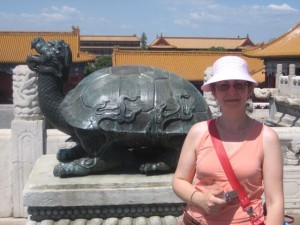
- Although I did have that experience with Expo, I resigned my position before the Fair actually opened – not one of the best decisions I’ve ever made.
- I lived in Toronto from 1986 to 1992 and worked for a variety of companies including Addison Wesley Publishers, Canada Mortgage and Housing Corporation, and Rogers Cablesystems. I also obtained my MBA from the University of Toronto while there.
- During my time in Toronto, I took creative writing lessons through the Continuing Education department at the U of T. My instructor, for two terms, was Anne Michaels who subsequently found much acclaim with the publication of her novel Fugitive Pieces among other works.
- I still have the letter Ms. Michaels wrote to me at the end of one term (she wrote a letter for to each student) encouraging me to give myself the gift of time to write. I have to admit, I’ve never quite learned how to do so, but I still may.
- While working for CMHC, I was seconded to the G8 1988 Economic Summit and worked in the media centre. I think I may have caught a glimpse of Margaret Thatcher once from a very great distance!
- My return to Vancouver in 1992 was prompted by a number of factors, primarily the impending birth of my first nephew. That’s one of the best decisions I’ve ever made because it brought me back home and allowed me to play a bigger part in his life, and the lives of his brothers, than I may have been able to from far away.
- September 2014 will mark 40 years since my family moved to British Columbia and settled in West Vancouver.
Questions from Chris Kennedy:
- If you could only watch one television station what would it be? CBC Newsworld
- Looking back at your schooling, what was the silliest rule your school had? I don’t remember which is probably a clear indication that school rules aren’t as effective as we’d like them to be. Or it may only be evidence of my memory issues!
- Who is the greatest ever Canuck? I’m sure I’d answer this differently every day and we’re lucky to have so many choices. Today I’m going to pick Lester B. Pearson because I believe he was a man who had a vision of how Canada could operate on the world stage in a manner which promoted peace and reconciliation. Our political leadership now seems to have abdicated that position. [Editor’s Note: I realize now Chris meant the hockey team and not Canadians in general in which case I’ll say Trevor Linden although I was also a Harold Snepsts fan. Oh, and Kirk McLean.]
- What is the greatest rock group of the 1980s? Please see the note above re memory issues. I was a Fleetwood Mac enthusiast and also a fan of the Little River Band, but I think that may have been more reflective of the 1970s.
- What is something education related you have changed your opinion on over your career? Assessment although not necessarily academic honours and awards.
- What is the warmest place you have ever been — and how warm was it? China in July 2009. My eyeglasses would fog up as soon as a I stepped out of the hotel lobby and I remember being drenched in perspiration from morning to evening.
- Poorest fashion trend you have seen in schools in the last 10 years? Ugh to Uggs.
- What was more frustrating to deal with in your school — Pokemon cards or silly bands? Luckily my role precluded the need to deal with this issue.
- Describe your favourite high school teacher in four words. Miss Lysell: dramatist extraordinaire inspiring imaginations.
- What is the best reason to go on Facebook at least once a day? For a smile while refreshing connections with friends and family, near and far.
- If blogging was outlawed tomorrow — what would be your reaction? Phew!
11 Random Questions for You:
- When you think back to your time as an elementary and/or high school student, what’s the one thing you wish had been done differently?
- What’s your favourite movie and why?
- If you were asked for one piece of advice to offer a first year student at a post-secondary institution, what would it be?
- What was your favourite song of 2013 and why?
- Who would you say serves as the best role model for young people today?
- Think about the work you’re doing now. Is it part of a career you had planned on or are you doing something you had never thought of doing when you were younger?
- If you could pitch an idea for a television show, what would it be? (Credit for this question goes to my son!)
- On a sunny day, do you make every effort to get outside or do you sometimes prefer to stay at home?
- If you had to choose one animal to best describe who you are, what would it be? (I was once asked this question in a job interview!)
- What do you think is one thing we could do to encourage more young people to vote in municipal, provincial, and federal elections?
- What is one change you hope to make in 2014?
I Challenge the Following People to do their “Homework”:
As Chris did, I extend the challenge of this activity to the educational community in the West Vancouver School District including parents and students who write and maintain blogs. I’d also like to extend the challenge to Trustees throughout British Columbia. It’s an interesting way to allow our communities to get to know us just that little bit better beyond our role as advocates for the public education system.
The Tracks Of Her Tears
I saw the mother of a young man cry last week.
Her tears weren’t tears of grief and loss.
Rather, the tracks of her tears captured a story of love, bewilderment, perseverance, disappointment, faith, despair, relief, pride, and thankfulness.
Why?
Her son had graduated.
Such a pedestrian sound to this accomplishment: her son had graduated.
But it’s only pedestrian because high school graduation has become an expected (minimal) norm in our world.
However, it’s a mistake to assume high school graduation is automatic even in a community such as West Vancouver which boasts a 97% graduation rate.
There’s the perception that all the children in this community will make it, that they all have an easy ride.
Wrong.
It’s a mistake to assume that the glittering mantle of expensive housing, disposable income, and stable family is the reality for each child. It’s wrong to assume they will thrive in our high schools.
That’s why we have ACCESS.
Located at West Vancouver Secondary School, ACCESS
“… is an alternate school program designed to provide an opportunity for students who require this unique setting to complete the requirements for high school graduation.
In addition to the basic academic program, ACCESS also provides students with the following opportunities.
- 10 day Bowron Lakes wilderness experience
- Participate in various local outdoor activities
- Access to community youth services
- Work experience
- Apprenticeship
Admission is through an interview process…”
The ACCESS grad luncheon this past week was an opportunity to recognize the accomplishments of remarkable young people who had done what is expected of many, but which was not a guaranteed outcome for them.
And in a society which increasingly favours conformity and compliance, they did so while holding on to their unique forms of self-expression, their standout personalities, and saying “I’ll do what you ask, but I’m doing it my way”.
That is strength of character, courage, and conviction.
At ACCESS collaboration is a lifeline. There’s a dedicated team of teachers and youth workers who guide these students and who are joined by representatives from community partners such as the District of West Vancouver Community Services, the West Vancouver Police Department, Vancouver Coastal Health, the Ambleside Youth Centre, and local businesses.
In hindsight, maybe the tears of that young man’s mother did denote loss of a kind. They reflected the grief she’s carried with her knowing her son’s journey has been immeasurably tougher than many of his peers.
But there was more in her eyes.
There was joy. Despite the obstacles, her son had reached this milestone and was publicly recognized for doing so.
There was hope. Hope that it was, after all, going to be fine.
What more could I ask for than to be associated with a system which provides joy and hope to those who are at risk and vulnerable?
A system that is not taken in by the appearance of the community’s “perfection”, but which understands that unless our “diamonds in the rough” have a place to call their own, then our claims of excellence will ring hollow.
The Speed of Life
Math was not my favourite subject in high school, but I was proficient with the material presented. Decades later a modicum of what I learned is hardwired for my general use, but don’t ask me to explain an advanced concept and please save me from anything that has to do with calculating probabilities.
One formula that has stuck with me is d = rt or distance (d) equals the rate of travel (r) multiplied by time (t). And while familiarity with the relationship between these three factors comes in handy for planning, lately I’ve been thinking about the formula’s applicability in a different way.
Why?
Because I think the distance we travel daily contributes to the feeling we have that life is hurtling by us at breakneck speeds.
On days when I teach, for example, the 25 kilometre journey to SFU’s Burnaby campus takes me about thirty minutes each way if traffic is flowing smoothly. That’s nothing compared to those who may commute in to Vancouver from the Fraser Valley or drive down each day from Squamish or ferry over from the Sunshine Coast.
Compare that to the daily distance my Grandmothers would have travelled as young women, my paternal Grandmother in rural Lebanon and my maternal Grandmother in rural Jamaica. Until they married, their circle of travel likely extended no further than 10 kilometres, by foot, over the course of a day.
We have extended the distances we travel dramatically and not just for essentials. How many consider a drive to the Bellis Fair Mall, a three-hour roundtrip from the Lower Mainland depending on border waits, a simple excursion? Or consider how cavalier we have become about booking vacations requiring hours if not days of travel?
So if the distances we traverse have become more extensive, and if you accept that our time is fixed (not just in the sense of 24 hours a day, but in the finite sense of our mortality), it would seem that the factor which has changed the most with regard to our day-to-day is r, the rate.
And that may help explain why it feels like we are living at a faster and faster rate, one which increases with each passing year.
Is it any surprise then, as we’re preparing to celebrate the arrival of the new year, that many of us wonder what happened to the old one? How is it that we are celebrating graduations when it seems like just yesterday we were celebrating the births of the children in our families?
And nothing drives home the finite nature of time as much as the loss of those around us, whether people we’ve known and loved, young and old, or strangers from far away whose images fill the news.
That’s why it’s vital to recognize, sooner rather than later, in our instantaneous 140-character world, that we do not have another now.
And unless we take control of the speed of our life, it will pass by in a blur.
